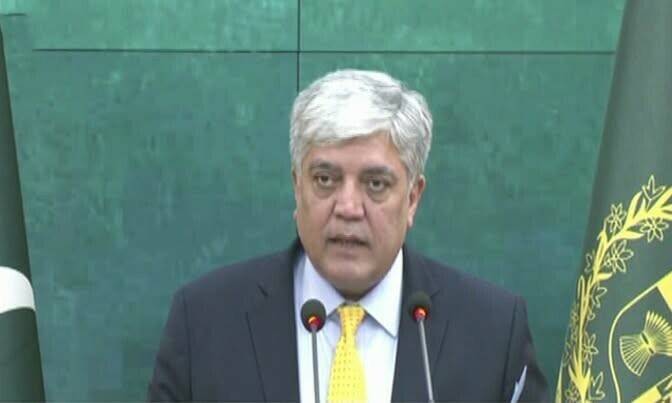Pakistan says no extension in March 31 deadline for illegal Afghan immigrants

Stay tuned with 24 News HD Android App

Pakistan's foreign office spokesperson confirmed on Thursday the government would not extend its March 31 deadline for Afghan Citizen Card (ACC) holders, despite concerns raised by the UN Refugee Agency (UNHCR) over forced deportations.
The UN agency has called for leniency in the process.
In March, Islamabad set a deadline for Afghans with ACCs—a specific immigration document—to leave the country. This move is part of a broader effort by Pakistan, initiated in 2023, to expel what it deems illegal immigrants amid an uptick in militant attacks.
A government official, speaking anonymously, said the deadline had been extended until early next week to coincide with the Eid Al-Fitr holidays. However, Shafqat Ali Khan, the foreign office spokesperson, clarified that there would be no extension beyond March 31 for illegal foreign nationals or Afghan ACC holders.
According to the United Nations, over 800,000 Afghans currently hold ACCs issued by Pakistani authorities.
The approximately 1.3 million Afghans who possess UN-issued Proof of Registration (PoR) cards, which are valid until June 30, are not part of the expulsion plan. However, reports suggest that some of these individuals are being relocated from Islamabad to Rawalpindi.
The UN estimates that nearly three million Afghans reside in Pakistan, many having fled decades of conflict in their home country or sought refuge following the Taliban's return to power.
Qaiser Khan Afridi, a spokesperson for UNHCR Pakistan, voiced concerns about the deportation campaign, urging that ACC holders be given sufficient time to leave voluntarily, in a manner that ensures their dignity and safety. He also noted reports of Afghan nationals being arrested in Islamabad and Rawalpindi, although these operations had begun before the March 31 deadline expired.
Following the deadline, a source in Islamabad's district administration, speaking on condition of anonymity, confirmed that 60 Afghan nationals had been arrested in the twin cities of Rawalpindi and Islamabad. The arrests were part of joint operations conducted by police and intelligence agencies. Twenty-two individuals with Afghan Citizen Cards were detained in Islamabad, while 38 were arrested in Rawalpindi. The arrested individuals have been moved to a temporary holding camp in Islamabad’s Old Hajji Camp area, where they will be processed before being deported to Landi Kotal, a town in northwestern Pakistan.
Afridi emphasized that the UNHCR is not directly involved in the deportation process but stressed the need for leniency towards the Afghan nationals.
Anwer Shehzad, a representative from the provincial government in Khyber Pakhtunkhwa (KP), shared that two repatriation camps had been established: one in Peshawar's Regi area and another in Landi Kotal. However, he explained that no Afghans had been relocated yet due to the Eid holidays. The transfer of Afghans to these camps for processing will begin on April 7. The camps are equipped with biometric verification counters by the National Database and Registration Authority (NADRA), along with representatives from various government departments. This process ensures that Afghans are properly identified if they return in the future.
Since the deadline announcement, approximately 100,000 Afghans have voluntarily returned to Afghanistan, with more than 800,000 still awaiting repatriation, according to KP's home department. Shehzad also mentioned that biometric data from these individuals will be provided to the Pakistani embassy in Afghanistan to support legal movement in the future.
Inquiries to Pakistan's interior ministry and provincial governments in Punjab, Balochistan, and Sindh were not responded to by the time of this report.
Afghanistan has repeatedly urged for a “dignified” return of its nationals from Pakistan, calling on Islamabad to avoid forced expulsions. Following a similar deadline in late 2023, over 800,000 Afghans returned between September 2023 and the end of 2024, according to UN figures.
